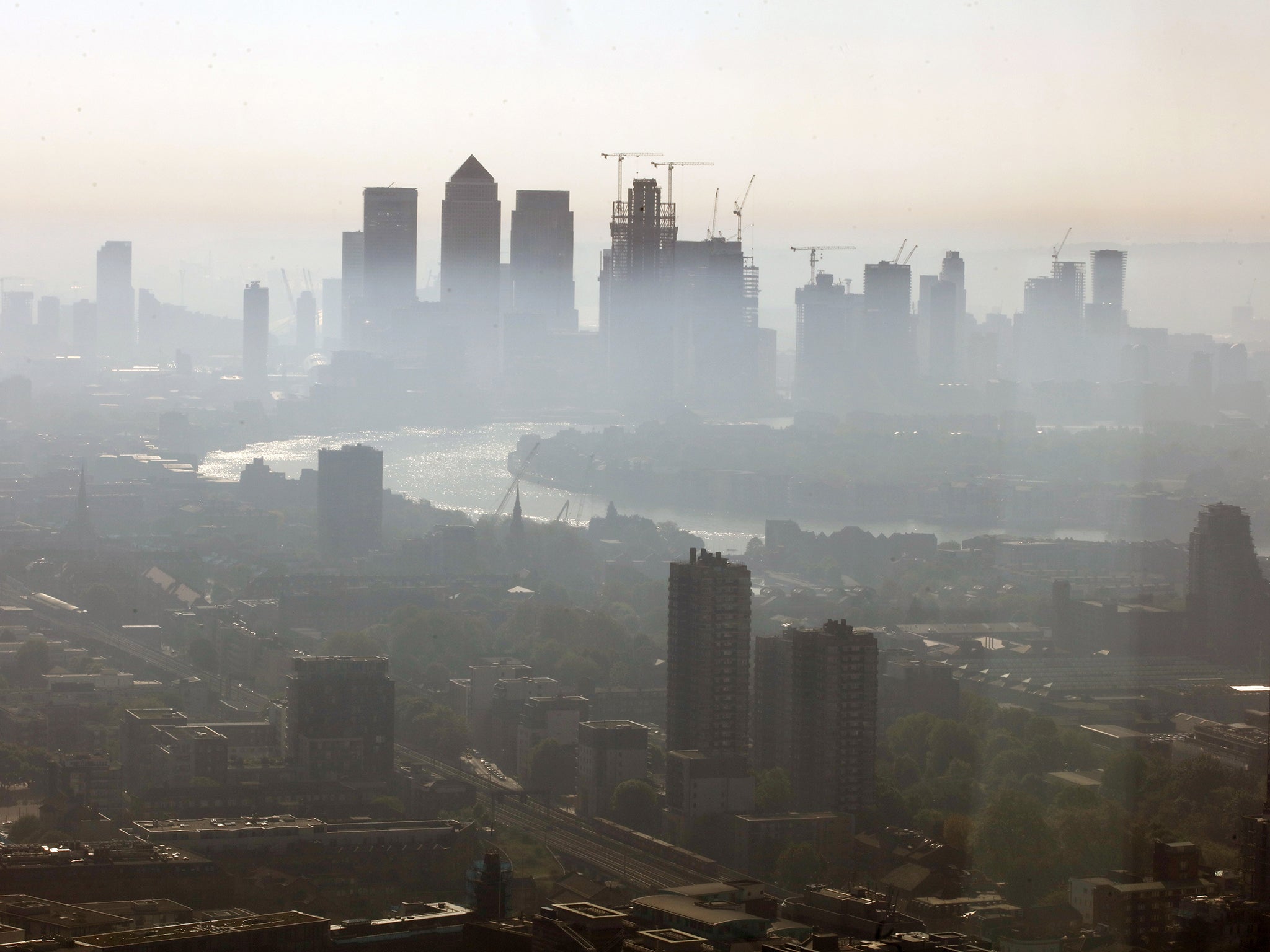Children exposed to 30% more pollution than adults on walk to school due to proximity to exhaust fumes, study says
Youngsters driven to school are exposed to twice as much pollution as those who walk

Primary school children are being exposed to 30 per cent more pollution than adults while walking along busy roads due to their closer proximity to vehicle exhaust fumes, a study claims.
The new research by NGO Global Action Plan, released to coincide with Clean Air Day on 21 June, was based on experiments across four UK cities – Manchester, Leeds, Glasgow and London.
The researchers used thermal imaging techniques which use CO2 as a tracer gas to illustrate how children’s height makes them more vulnerable to exhaust fumes including nitrogen oxide (NOx), nitrogen dioxide (NO2) and diesel particulates.
The results also revealed that for children who are driven to school, the situation is far worse. They are exposed to double the pollution inside a vehicle than those walking on busy streets.
It showed that pollution levels from petrol and diesel vehicles were 2.5 times lower for children walking along quiet roads.
Air pollution is associated with reduced lung growth in childhood, as well as increased severity of asthma and pneumonia, according to research by Queen Mary University’s Professor Jonathan Grigg.
“Children’s lungs are especially vulnerable for those at primary school and younger, as they are still developing,” Professor Grigg said.
“It’s critical that we protect the health of our children’s lungs from air pollution, in order to prevent lasting damage. My research has shown that exposure of young children to higher amounts of air pollution from traffic, has a major impact on their lungs. Although parents can reduce this impact by walking on less polluted roads and taking public transport, the UK government must take further steps to reduce toxic emissions from all roads.”
Toxic air zones
Separate research also released to coincide with Clean Air Day reveals that 30 per cent of British children live in “toxic air zones”, according to analysis by Unicef UK.
The charity says 4.5 million children are growing up in areas with unsafe levels of particulate pollution.
Unicef said of the 20 local authorities with the largest proportion of babies living in them, almost three-quarters breach safe levels for particulate matter. Among the worst affected are children in Birmingham, London, Manchester, Liverpool and Bristol.
The health effects of exposure to small particulate pollution are estimated to cost the NHS and social care sector in excess of £40m each year. Public Health England research shows that even the smallest improvement in air quality could reap massive rewards for children and the UK taxpayer.
During road closures for the London Marathon, traffic-free streets saw pollution levels drop by 89 per cent, research by Kings College London revealed.
Unicef UK’s Amy Gibbs said: “We already know that air pollution is harmful, but these findings force us to face a shocking reality about the acute impact on children’s health. Worryingly, one-third of our children could be filling their lungs with toxic air that puts them at risk of serious, long-term health conditions.
“It’s unacceptable that the most vulnerable members of society, who contribute the least to air pollution, are the ones suffering most from its effects. We wouldn’t make our children drink dirty water, so why are we allowing them to breathe dirty air?
Thick smog engulfs New Delhi as air pollution peaks in the city
Show all 10Speaking about Global Action Plan’s research on children’s greater exposure to vehicle pollution, the environment secretary, Michael Gove, said: “This troubling new research is a further demonstration of why we need to take strong action now to improve air quality.
"Our new Clean Air Strategy sets out how we will be the first major developed economy to reduce air pollution in line with World Health Organisation limits and we have invested £3.5bn to reduce harmful emissions.
"But Clean Air Day reminds us that by taking simple steps, like leaving the car at home for the school run, we can work together to reduce air pollution and protect our health.”
Subscribe to Independent Premium to bookmark this article
Want to bookmark your favourite articles and stories to read or reference later? Start your Independent Premium subscription today.

Join our commenting forum
Join thought-provoking conversations, follow other Independent readers and see their replies